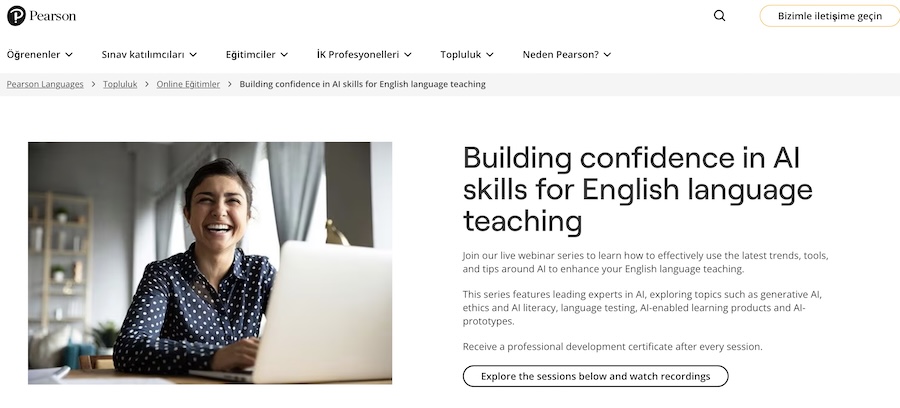Reflections on Pearson’s ‘Building Confidence in AI Skills for English Language Teaching’ Webinar Series’

Reflections on Pearson’s ‘Building Confidence in AI Skills for English Language Teaching’ Webinar Series’
By
Metin Çırpan
Pearson Languages hosted a five-part live webinar series titled "Building Confidence in AI Skills for English Language Teaching," from September 23rd to 27th, 2024. The series featured leading AI experts who explored topics such as generative AI, ethics, AI literacy, language testing, AI-enabled learning tools, and AI prototypes, with a particular focus on how to effectively use the latest tools, trends, and techniques to enhance English language teaching.
On the first day, Dr. Jules White, Director of Vanderbilt’s Initiative on the Future of Learning & Generative AI, discussed how generative AI can reshape language learning. Dr. White highlighted its transformative impact on education and communication, emphasizing the importance of teaching language skills to enable effective interaction with AI. He demonstrated practical applications such as personalized learning experiences and problem-solving through conversational AI.
Below are key takeaways from the first session, titled “Understanding the AI Framework: A Back-to-School Guide”:
-Teaching students to communicate effectively in English is becoming increasingly critical in an AI-driven world. Mastering language skills empowers students to engage not only with humans but also with AI. This shifts the focus from traditional search methods to meaningful dialogues with AI.
-Generative AI enhances learning by enabling users to create tailored content for practice, such as creative storytelling. It allows learners to use personas to simulate conversations, translate complex concepts like relativity into more relatable terms through metaphors, and use real-world images to explore vocabulary and context.
However, there are certain challenges to address:
- Engagement with generative AI should prioritize the development of critical thinking and creativity rather than just seeking direct answers. Students must cultivate skills that allow them to leverage AI for deeper learning, rather than relying on it for quick responses or simply copying content.
- AI "hallucinations"—where the technology generates incorrect or fictional information—can also foster creative thinking and new ideas, but users must remain critical and fact-check outputs for accuracy.
Dr. White concluded his session by describing augmented intelligence as an “exoskeleton for the mind,” encouraging educators to amplify human attributes rather than attempt to replace them.
Please click here to read the full article in PDF format.
